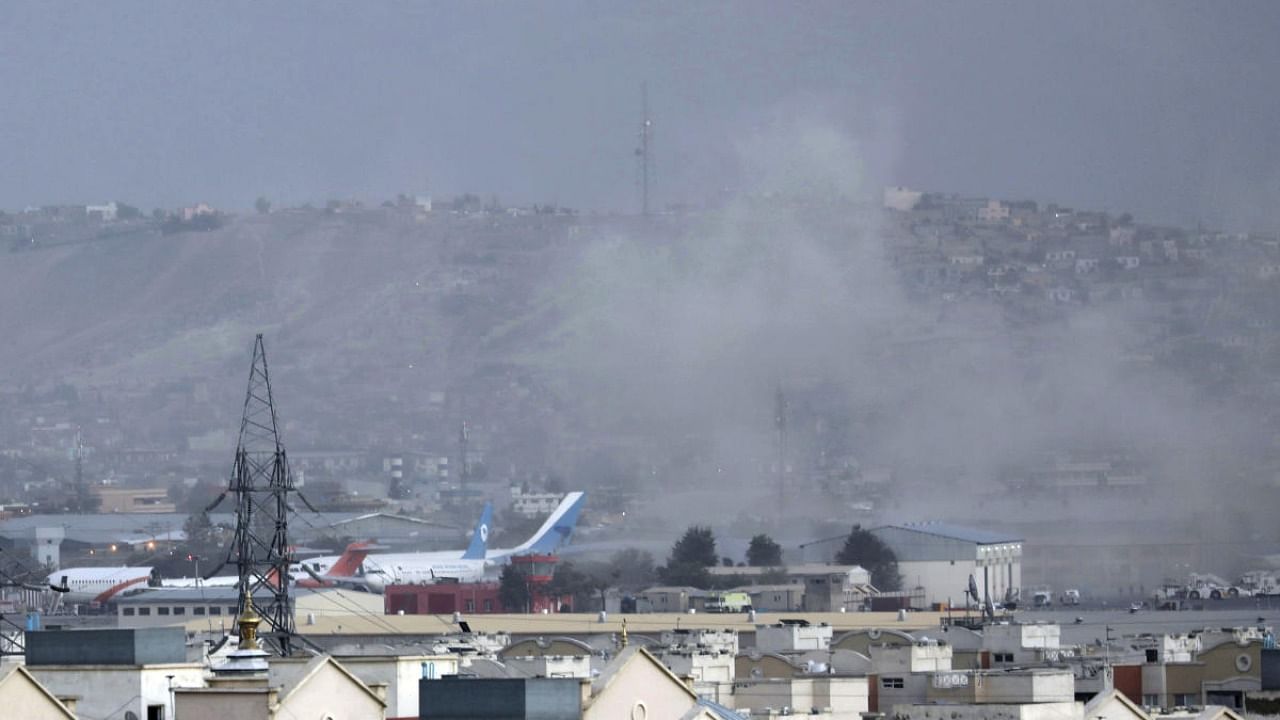
Two senior ISIL-K leaders, including the group’s spokesperson who claimed responsibility for the deadly suicide attack near the Kabul international airport in August 2021 that killed scores of civilians during the United States's chaotic evacuation from strife-torn Afghanistan, were blacklisted by the United Nations.
Islamic State in Iraq and the Levant -- Khorasan (ISIL-K) spokesperson Sultan Aziz Azam and senior leader Maulawi Rajab -- were designated by the UN Security Council’s 1267 ISIL (Da’esh) and Al-Qaida Sanctions Committee on Wednesday.
The two Afghan nationals have been added to the sanctions list and are now subject to assets freeze, travel ban and arms embargo.
Azam, 37, is a former Afghan journalist and has held the position of ISIL-K’s spokesperson since the terror group first established itself in Afghanistan in 2015.
On August 26, 2021, Azam “claimed responsibility on behalf of ISIL-K for the suicide attack near Hamid Karzai International Airport in Kabul, which killed at least 170 Afghans and 13 US service members and injured 150 more,” the Sanctions Committee said. In his statement, Azam provided details of the deadly attack, which came days after the Taliban captured Kabul on August 15, 2021.
Thousands had gathered outside the Kabul airport in desperate attempts to flee the country after it fell to the Taliban and the US forces began their chaotic withdrawal two years ago.
Azam was listed for “participating in the financing, planning, facilitating, preparing, or perpetrating of acts or activities by, in conjunction with, under the name of, on behalf of, or in support of,” and “recruiting for” ISIL-K.
As ISIL-K’s spokesperson, he played an “instrumental role" in spreading ISIL-K’s violent jihadi ideology, glorifying, and justifying terrorist acts, it said.
“Building on his former experience as an Afghan journalist, his activity as ISIL-K’s spokesperson has increased its visibility and influence among its followers. His numerous statements and other propaganda activities have encouraged the recruitment of new members, and the perpetration of terrorist acts on behalf of the organisation,” the Sanctions Committee said.
On March 2, 2021, ISIL-K claimed responsibility for the assassination of three female journalists.
The day after their assassination, the ISIL-K news channel Akhbar Wilayah Khorasan circulated a message from Azam titled, “We are the People of Action.”
In the message, Azam claimed the responsibility for killing the three female journalists, which he claimed was in retaliation for the Afghan government’s alleged destruction of several ISIL-K populated villages.
He also said that these three women were targeted because the Afghan government intended to repatriate captured foreign ISIL-K members to their countries of origin, according to the summary provided by the sanctions committee.
Azam’s “propaganda activities have supported ISIL-K in recruiting and inspiring its members to carry out high-profile attacks in Afghanistan,” it said.
“He has written several books and articles narrating stories about jihadists in order to inspire people to join the organisation ranks. Excerpts and anecdotes from his books are often shared by supporters on the messaging app Telegram,” it said.
The Sanctions Committee said that Rajab, 46 was listed for being associated with ISIL or Al-Qaida for “participating in the financing, planning, facilitating, preparing, or perpetrating of acts or activities by, in conjunction with, under the name of, on behalf of, or in support of” ISIL-K.
He plans ISIL-K’s attacks and operations and commands ISIL-K groups conducting attacks in Kabul, Afghanistan,” the Sanctions Committee added.